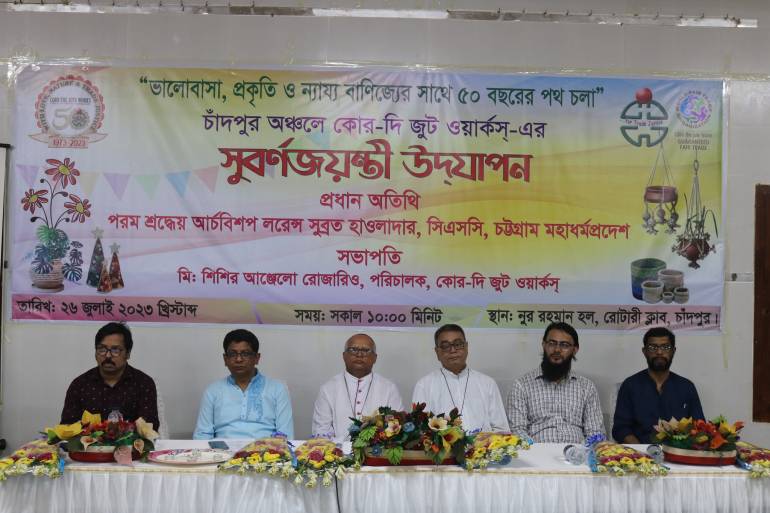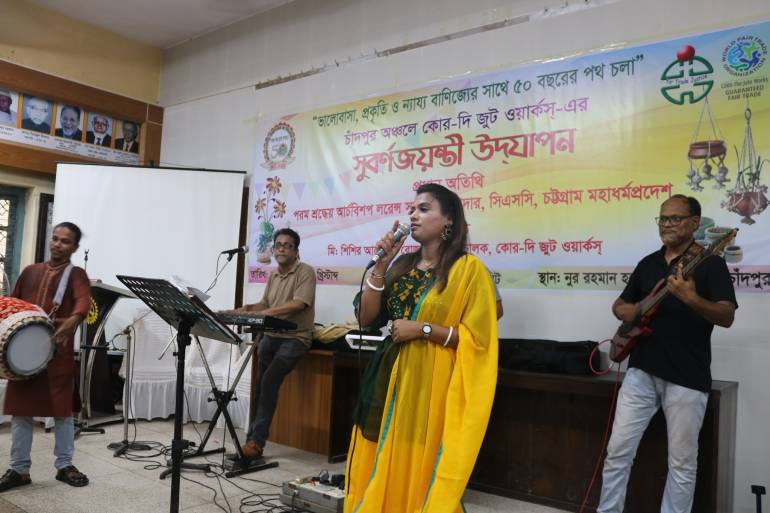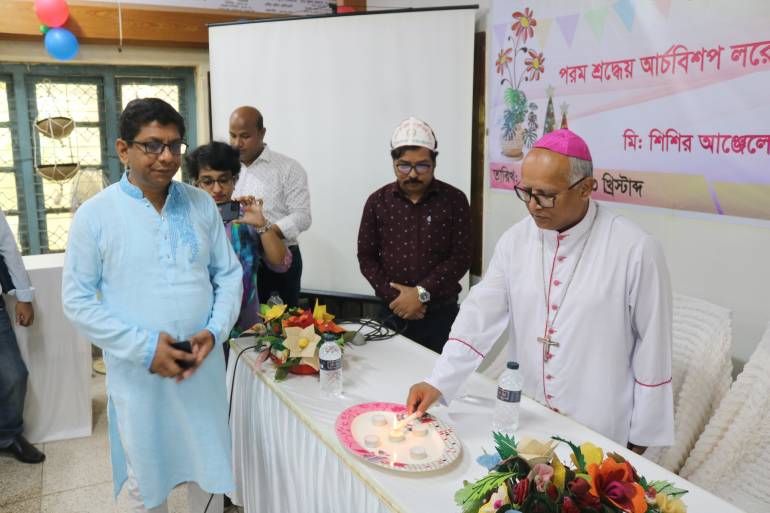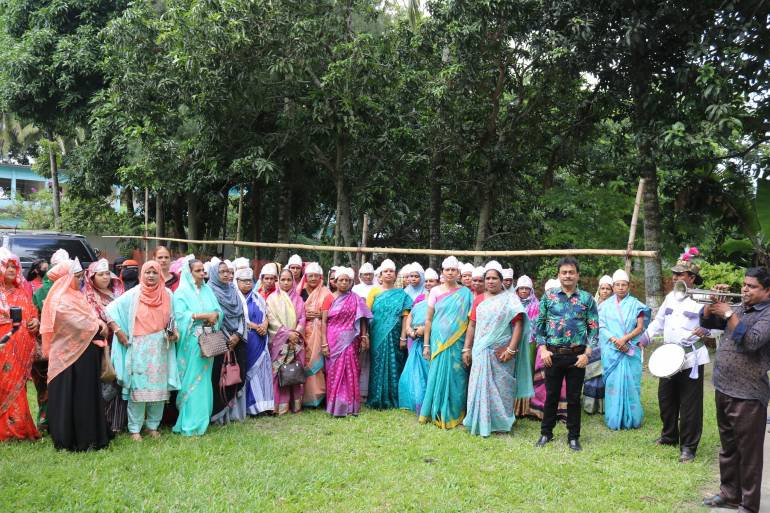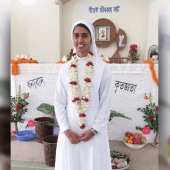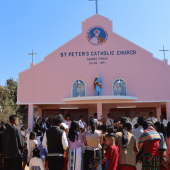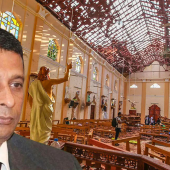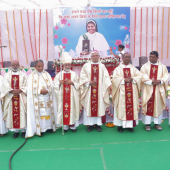Bangladesh: Church-based handicraft organization opens its golden jubilee
The Christian Organization for Relief and Rehabilitation (CORR)-The Jute Works (CJW), a church-based handicraft cooperative in Bangladesh, opened its golden jubilee of existence on July 26.
Holy Cross Archbishop Lawrence Subrata Howlader of Chittagong graced the event as the chief guest at the Chadpur Rotary Club Auditorium with all artisans of Chandpur and Noakhali.
Father Jerome D. Rosario, Parish Priest, Lakshmipur Church; Kazi Shahadat, editor of Chadpur Kantha; Md. Mohiuddin, chief inspector, Jute Department, Chadpur; Reverend Thomas Moloy Dasgupta of Baptist Church; and local representatives were also present as special guests.
Deputy Director, CJW, and convenor of the jubilee committee, Uzzal Theotonious Corraya, welcomed all to the program.
The Director of CJW, Shishir Anjelo Rozario, presided over the event and expressed his thanks to all craftspeople, buyers, employees, and associates for their support over the last 50 years.
The program includes a rally, the sharing of artisans' success stories, speeches from the guests, and delightful cultural events.
The gala event will be observed on September 2, 2023.
CJW had its humble beginnings as a source of income for people’s sustainability in Bangladesh.
The Jute Works, a recognized Fair-Trade Trust established on September 2, 1973, produces and markets handicrafts. Additionally, it was an early participant in the World Fair Trade Organization (WFTO), formerly known as IFAT. The WFTI is an association of small and medium enterprises (ASME).
After Bangladesh’s War of Independence in 1971, CORR now Caritas Bangladesh, implemented a program of reconstruction to alleviate the plight of war widows, war victims, and marginalized rural women who became reliant on relief and sympathy. CORR received a letter from the CARE New York office in August 1972.
Lesley & Co. of New York, a design company, promised to assist Bangladesh in the growth of its handicraft industry. A young fashion designer named Louisa Brooke visited Dhaka in January 1973 for six weeks of observation.
She learned that Sister Michael Francis, CSC, and Sister Mary Lillian, SMRA, two Catholic nuns, oversaw the Jagorani Center, a facility for training in handicrafts.
For eight weeks, the institution trained rural women to make jute and other crafts that were sold nearby. As a result, they work part-time at home, providing the family with additional revenue. Louisa Brooke's instruction enabled the two nuns to begin forming village organizations.
In June 1973, the Mennonite Central Committee (MCC) assigned Harley Snyder, a CPA, to CORR for a two-year term to establish a central organization for jute crafts.
Holy Cross Father Richard William Timm developed a plan for a cooperative handicraft business that would be exclusively for women.
The rural artisan groups were to establish the major cooperatives, and CORR-The Jute Works (CJW) would eventually grow into a significant organization for handicrafts.
CJW's name was used to acquire an export permit. The CJW began operations on September 2, 1973.
For its initial eight months, CJW operated out of Oxfam's abandoned two-room garage. Through their shops in England, Oxfam assisted in testing the international market.
For the first two years, the Bangladeshi Oxfam Country Director also sat on the CJW Managing Committee. In the first year of operation, the International Rescue Committee covered the costs of three local employees.
MCC, Concern, Enfant du Monde, YWCA, CHCP, and a few other smaller groups gradually came to be identified with CJW because they participated in work to provide underprivileged women with sources of income.
Through CJW, they organized artisanal groups and received training. For the CJW, Peter McNee, a New Zealand-born missionary, volunteered to take on the task of locating international markets for these handicrafts.
The Third World Shops (now known as Fair Trade Organizations, FTOs, or ATOs) sold the goods made by rural women artisans through their stores.
A market for exports was gradually created, and as it prospered and grew over time, it gave rural women in greater need of employment a job. To ensure the grassroots women artisans' fair wages and enable them to live in dignity, CJW sold handicrafts to various global markets. CJW ensures trade through its efforts, not aid.
Radio Veritas Asia (RVA), a media platform of the Catholic Church, aims to share Christ. RVA started in 1969 as a continental Catholic radio station to serve Asian countries in their respective local language, thus earning the tag “the Voice of Asian Christianity.” Responding to the emerging context, RVA embraced media platforms to connect with the global Asian audience via its 21 language websites and various social media platforms.





